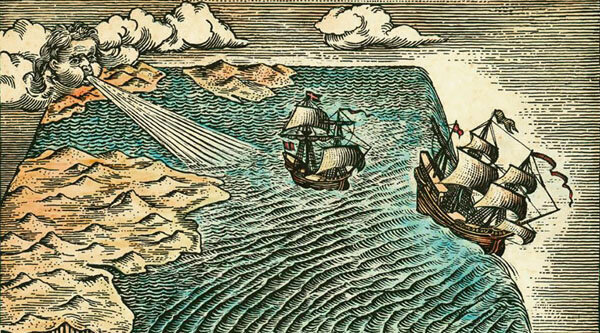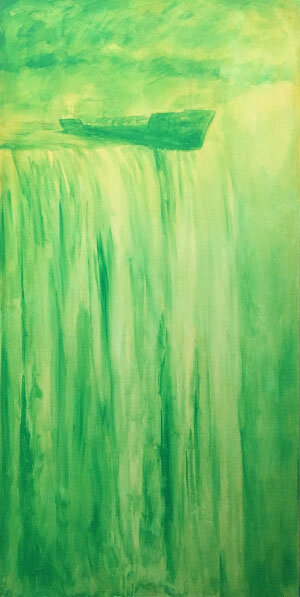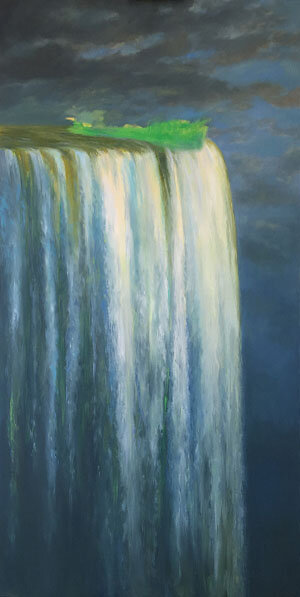It’s commonly said that people used to believe the earth was flat. They thought the world was a flat disk surrounded by water, and if you ventured too far out to sea, you would sail over the edge. They couldn’t accept that we live on a sphere, as surely anyone living on the bottom would fall off.
Nowadays some people refute the science of humans causing climate change. In spite of overwhelming evidence, they insist climate change is not real or is a hoax. They fail to realize we are heading towards a perilous, uncertain future. Our persistent use of fossil fuels over the past century has flooded the atmosphere with greenhouse gases which are now clearly warming the planet. The longer this continues, the more precarious things will become. Scientists have predicted that, if we don’t drastically curtail our consumption of fossil fuels, we may initiate a cascade of unstoppable changes to the planet. We are in a situation not unlike those fabled ships heading towards the edge of the world. Unless we can turn this ship around, we are going to find ourselves crossing a point of no return.
I wanted to encapsulate my concerns of climate change in a painting. The image of ship heading over the edge of the world seemed an apt metaphor for our current predicament. Instead of a sailing ship, however, I would have an oil tanker to symbolize our society’s addiction to fossil fuels.
I did a few preliminary studies of my idea. I tried both horizontal and vertical compositions. Eventually I chose a tall, narrow shape to convey a sense of perilous depth. The ship would be shown on the precipice of a plunging waterfall, about to slip over and plummet towards the abyss below.
After completing my preparatory work, I began working on a full-sized canvas. I started my under-painting with yellows and greens, hoping this foundation would give my painting an eerie, aquamarine glow. The image developed quickly, as I steadily refined the sky, waterfall, and ship.
Eventually the only thing left to do was add a name on the bow of the ship. I rarely have text in my art as it tends to dominate an image, but in this circumstance, I felt it would be a helpful to have something to paraphrase my painting’s concept.
I mulled over a number of possible names. I considered words like arrogance and hubris as they suggest our stubborn reliance on oil. When I looked up the word hubris in the dictionary, I encountered a word I was unfamiliar with ~ hamartia. This word derives from ancient Greek, and is most often used when describing dramatic literature. Hamartia refers to the fatal flaw that leads to the downfall of a tragic hero or heroine. I recognized immediately that I had found the ideal name for my ship. Not only did hamartia allude to my concept, but it actually sounded like the name of a ship.
Now that my painting was finished, I still needed a title. I tend to leave this task until the end, as it keeps the painting from being confined by a name during the creative process. I like my titles to guide my audience without over-clarifying my concept. A title should complement or augment a painting, never supersede it. It requires the right balance. If a title is too obvious or didactic, or conversely too opaque, the integrity of the artwork may be compramized.
The title I chose for this painting is Uncharted Waters. It signifies the unfamiliar territory we are now entering. Our actions have already begun to transform the environment. And as the planet grows warmer, sea levels rise, and storms become more severe, we shall soon find ourselves living upon a radically changed planet. I don’t know what lies ahead, but as my painting presages, our future could be quite treacherous.







